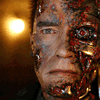Note: I've also been unable to transfer data (any amount) TO the external drive, which is an IDE drive in an enclosure, connected through USB. Not sure if that has any relevance or not, that drive is old enough that it is very possible it's simply failing.
BSOD during large file transfers
Started by
Kib
, Aug 27 2010 07:13 PM
#1

 Posted 27 August 2010 - 07:13 PM
Posted 27 August 2010 - 07:13 PM

Note: I've also been unable to transfer data (any amount) TO the external drive, which is an IDE drive in an enclosure, connected through USB. Not sure if that has any relevance or not, that drive is old enough that it is very possible it's simply failing.
#2

 Posted 28 August 2010 - 10:28 AM
Posted 28 August 2010 - 10:28 AM

Hi Kib 
Did you format the new HDD before you started copying to it & what speed is it, 5400, 7200 or 10000rpm
Here is a link to burstcopy which will speed up your file transfer rate, it is only a 30 day trial but it is
worth trying to see if it improves things. http://www.burstcopy.com/download/
Another possible cause could be your Ram, how much do you have installed and what are its specs.
Download and run Memtest86+ from here http://www.memtest.org/ and you can find a guide for using the
programme here http://www.geekstogo...sing-memtest86/
Did you format the new HDD before you started copying to it & what speed is it, 5400, 7200 or 10000rpm
Here is a link to burstcopy which will speed up your file transfer rate, it is only a 30 day trial but it is
worth trying to see if it improves things. http://www.burstcopy.com/download/
Another possible cause could be your Ram, how much do you have installed and what are its specs.
Download and run Memtest86+ from here http://www.memtest.org/ and you can find a guide for using the
programme here http://www.geekstogo...sing-memtest86/
Edited by phillpower2, 28 August 2010 - 10:31 AM.
#3

 Posted 28 August 2010 - 01:18 PM
Posted 28 August 2010 - 01:18 PM

Thanks for the reply. The HDD is a 7200, and I have 2x 1gb of DDR2 533 ram. I may try burstcopy later, but as the problem is mainly one of stability, not transfer *speed*, I'm going to keep working at that first. I did a quick format before I first started using the drive, and tried to do a full format later after the problems started, which resulted in BSOD.
#4

 Posted 28 August 2010 - 02:34 PM
Posted 28 August 2010 - 02:34 PM

I would run Memtest now then, do between 5 and 8 passes.
Let us know how this goes.
Let us know how this goes.
#5

 Posted 29 August 2010 - 03:40 PM
Posted 29 August 2010 - 03:40 PM

I ran Memtest, did 8 passes on one stick and 10 on the other, and both came back with 0 errors. Thanks for the continued help.
#6

 Posted 29 August 2010 - 04:12 PM
Posted 29 August 2010 - 04:12 PM

The Ram appears to be ok then at least.
Other possibilities are the WD HDD having bad sectors/failing on it or the OS having issues, it may be wise to back this
drive up to the new larger one
Try running chkdsk volume:/r, you can find the instructions "how to" at this link http://support.microsoft.com/kb/315265
Other possibilities are the WD HDD having bad sectors/failing on it or the OS having issues, it may be wise to back this
drive up to the new larger one
Try running chkdsk volume:/r, you can find the instructions "how to" at this link http://support.microsoft.com/kb/315265
#7

 Posted 29 August 2010 - 08:19 PM
Posted 29 August 2010 - 08:19 PM

I ran a full chkdsk on the WD and it came back fine. For clarity's sake; the WD is my main drive that doesn't appear to be having any problems. I am using it, the Seagate (SG) and a 7gb thumb drive (TD) to check what works and what doesn't. This is what I got:
WD --> SG: Fail
SG --> WD: Fail
WD --> TD: Success
TD --> SG: Success (Which is odd)
SG --> TD: Fail
TD --> WD: Success
This is all using the same 1.87Gb folder. Still at a loss, considering finding a (reliable) way to back everything up so I can wipe the WD, reinstall the OS and start from scratch.
WD --> SG: Fail
SG --> WD: Fail
WD --> TD: Success
TD --> SG: Success (Which is odd)
SG --> TD: Fail
TD --> WD: Success
This is all using the same 1.87Gb folder. Still at a loss, considering finding a (reliable) way to back everything up so I can wipe the WD, reinstall the OS and start from scratch.
#8

 Posted 01 September 2010 - 04:33 PM
Posted 01 September 2010 - 04:33 PM

So I may be replacing my current MOBO with an Asus M4A78-E, if I can't figure out what's wrong with this one, because I can get one cheap. Any thoughts as to the merits of this board? Downsides? Worth $70-$80?
#9

 Posted 02 September 2010 - 07:37 AM
Posted 02 September 2010 - 07:37 AM

The MB is ok but I am not sure why you are replacing your own just yet 
How many GB space have you got left on the WD HDD?
You need at least 15% of the HDDs overall capacity free (45GB) or you
will start having problems with the master file table (MFT).
You can google MFT and find a better explanation than I can give
you about what it does and why it is important, so I suggest you check
your available HDD capacity before parting with your cash on a new MB.
How many GB space have you got left on the WD HDD?
You need at least 15% of the HDDs overall capacity free (45GB) or you
will start having problems with the master file table (MFT).
You can google MFT and find a better explanation than I can give
you about what it does and why it is important, so I suggest you check
your available HDD capacity before parting with your cash on a new MB.
#10

 Posted 03 September 2010 - 02:18 PM
Posted 03 September 2010 - 02:18 PM

My hard drive has always had at least 15% free, and I actually deleted a bunch of files I didn't need anymore, to free up space, after which my computer became more unstable. When it runs chkdsk after it dies it keeps coming up with corrupt files and indexes, more everytime it checks. It no longer starts up fully. I'm going to try to save what I can, and then I'll format it and reinstall windows. If that doesn't work, new MOBO time. Thanks again
#11

 Posted 04 September 2010 - 02:51 AM
Posted 04 September 2010 - 02:51 AM

Good plan and I hope it works out ok for you.I'm going to try to save what I can, and then I'll format it and reinstall windows
#12

 Posted 09 December 2012 - 10:05 AM
Posted 09 December 2012 - 10:05 AM

This is an old topic, but I get similiar BSoD's when I copy one particular file (>1 GiB in size) from my HDD and to a SD card. Other files works good as a charm. Really weird. Too bad you can't do PrtScr's on BSoD, hrhr. Ideas?
Similar Topics
0 user(s) are reading this topic
0 members, 0 guests, 0 anonymous users
As Featured On:















 Sign In
Sign In Create Account
Create Account

